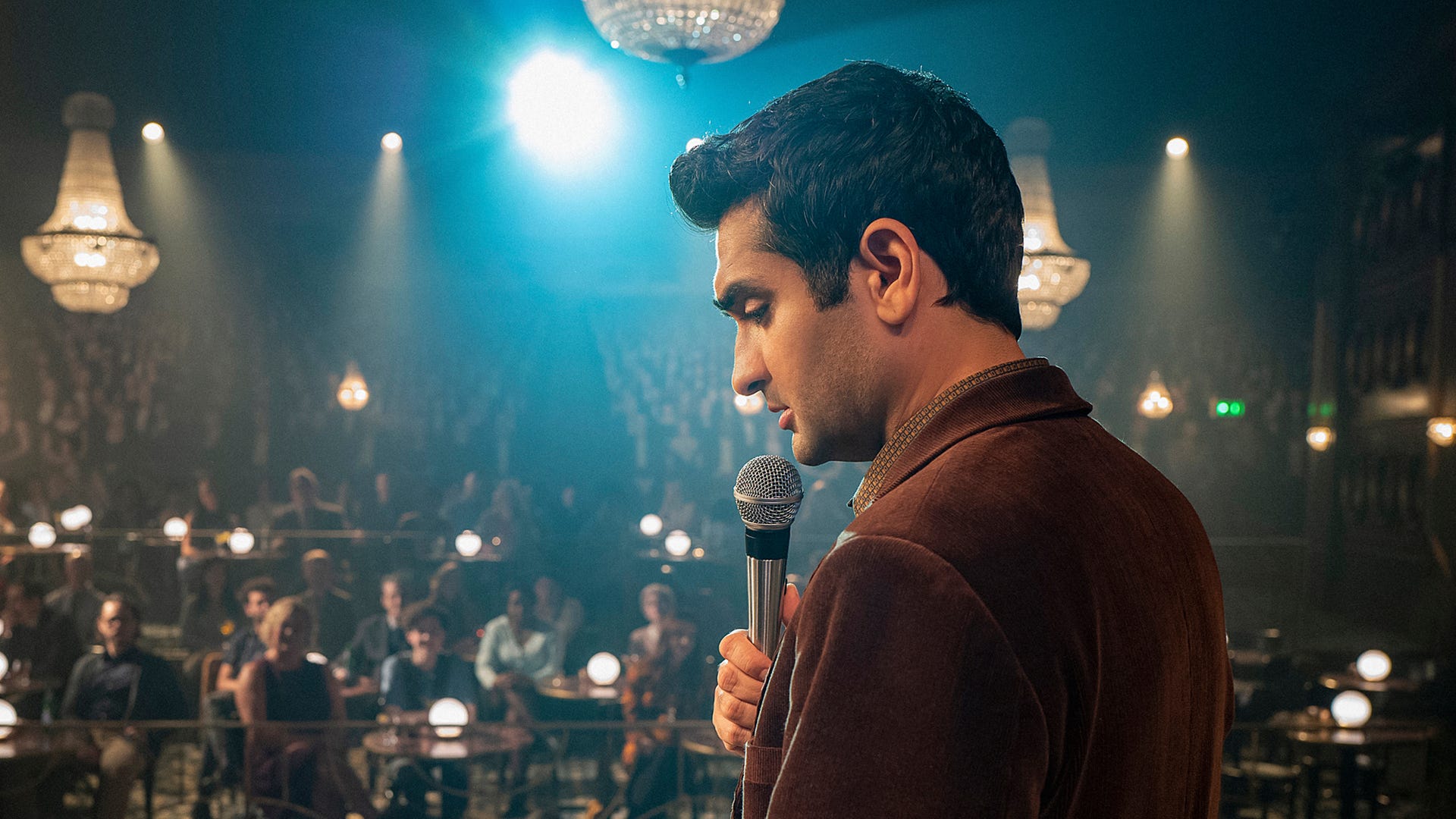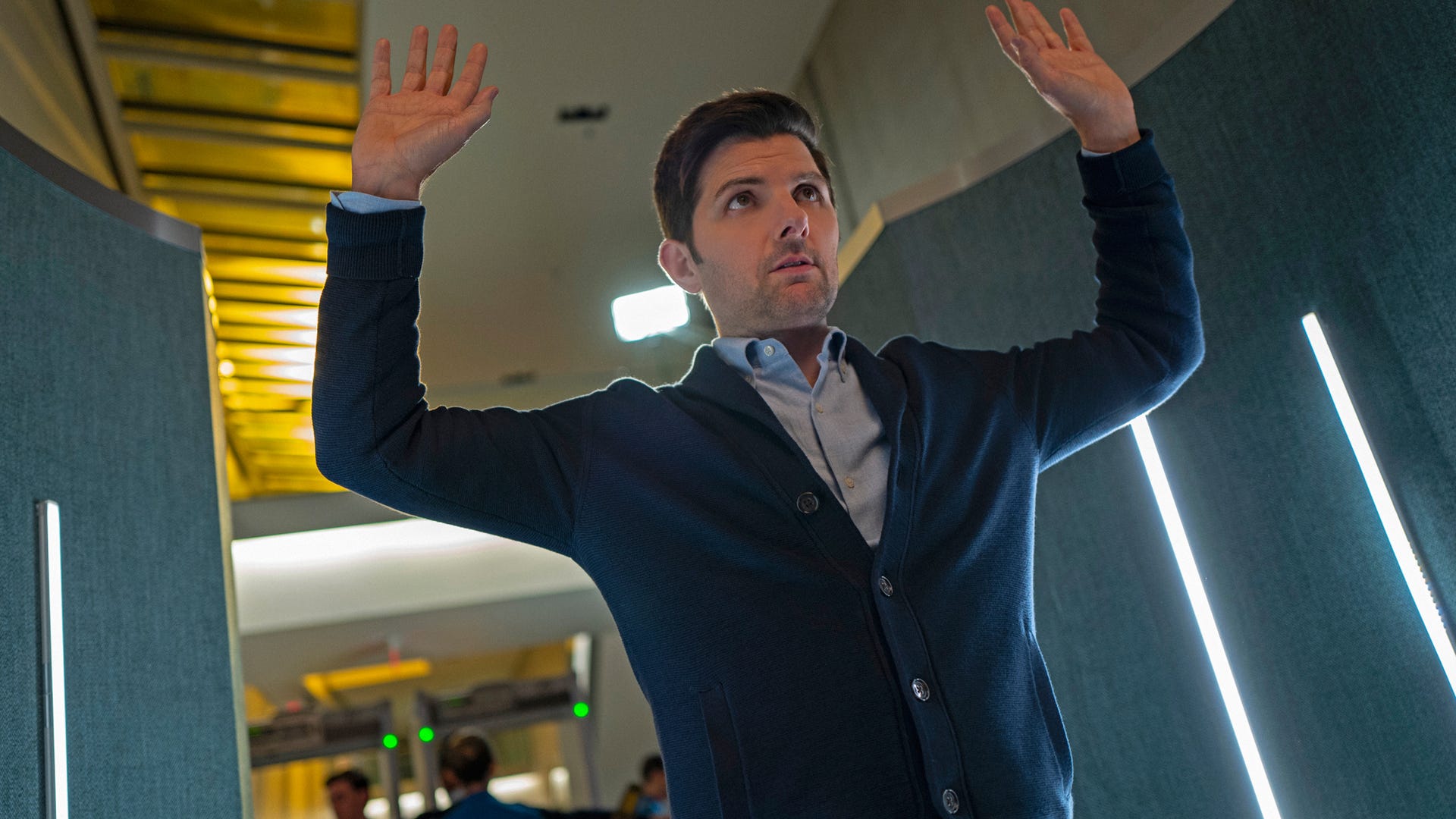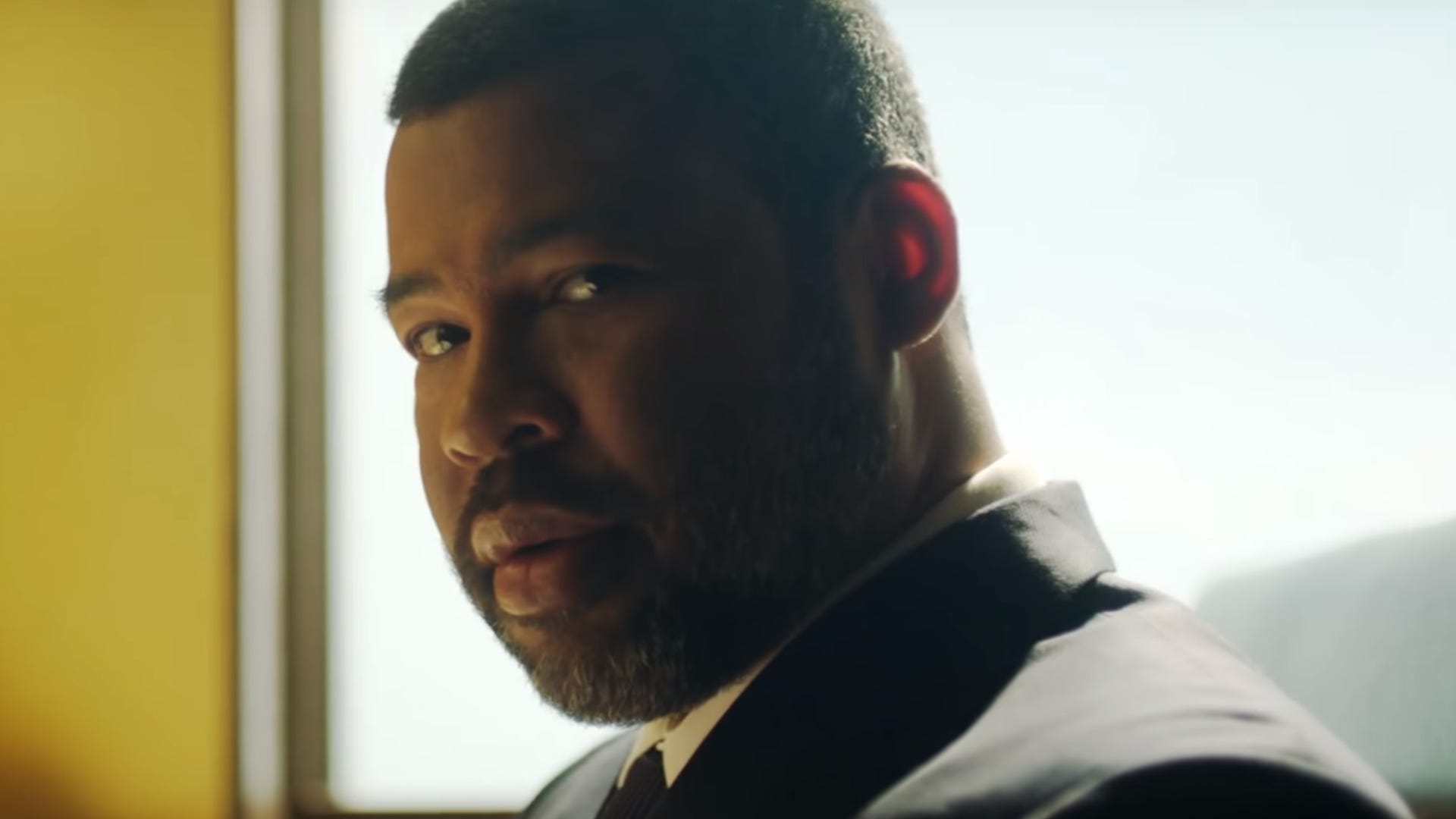Join or Sign In
Sign in to customize your TV listings
By joining TV Guide, you agree to our Terms of Use and acknowledge the data practices in our Privacy Policy.
The Twilight Zone Review: Jordan Peele's Reboot Is a Loving Homage to the Original
It's the Twilight Zone you remember, but tweaked in all the right places
Rebooting a cherished franchise comes with all kinds of red flags. How much do you depart from the original? How much do you make it your own? Sure, a reboot comes with a built-in audience already interested in the franchise, but it also comes with a whole bunch of people expecting to be disappointed, because that's the kind of society we live in. Reboots may be insanely popular at the moment, but they're tricky and risky business, particularly when talking about a show as beloved and well-known as The Twilight Zone.
CBS All Access' reboot of The Twilight Zone -- the third revival overall and first since 2003 -- takes a simple approach to resurrection: Don't do anything drastic! Executive producer Jordan Peele must really appreciate the original, because he's hardly changed the show at all in what's a loving homage updated just enough for today's audience. Like the original, Peele's Twilight Zone is an anthology with familiar faces that will get your brain spinning through stories of science-fiction, fantasy, horror, and sometimes all three. It is quintessential Twilight Zone through and through, and the first of the revivals to really live up to the feel of the original.

Kumail Nanjiani, The Twilight Zone
Robert Falconer/CBSThe opening credits sequence is there -- modernized, but with a vintage feel. The overall sense of eeriness is everywhere; the original's trademark is lovingly untouched. And the narrator, originally played by series creator Rod Serling but updated here with Peele himself, shows up to introduce us to each scenario and send us off with a lesson to be learned. In fact, the greatest thrill you'll get each episode is when Peele, dressed in a suit like his predecessor, shows up to deliver his stoic cautionary warning detailing what's about to go down. Peele's presence on the show is an important step for television: He's unifying multiple audiences just by being there, and he's so good in the role that he immediately gives the reboot the credibility and authority of the original. Peele got his chops in comedy, but he's the perfect person to pass the torch to as a symbol of how television is progressing to better represent everyone. I can't say this enough.
But as much as The Twilight Zone was lauded as a classic, let's not forget that the original was wildly inconsistent, which is to be expected from any show that pumps out more than 150 episodes, each with a new story. I watched four episodes of the new Twilight Zone, and they ranged from tense mind-blower to mild eyebrow-archer. The same can be said about Twilight Zone's most comparable modern-day counterpart Black Mirror, which has about a 50 percent hit rate. Anthologies are hard to pull off, but we tend to judge them on their peaks rather than their valleys; the same thing is happening here.
The 15 Twilight Zone Episodes That Aged the Best
The best of the bunch is "Nightmare at 30,000 Feet," an update on the 1963 classic "Nightmare at 20,000 Feet," and it's a great look at how the new series can feel fresh while honoring the original at the same time. In the original, William Shatner was an airline passenger who believed a monster was destroying the plane's engine, while no one else aboard believed him. It did what The Twilight Zone did best; it gave us a supernatural phenomenon, but made the terror come from the character being trapped in the situation rather than the monster itself (it was also recreated in Twilight Zone: The Movie, in nearly identical fashion). In "30,000," Adam Scott plays a similar character in a similar situation, and while the paralyzing paranoia and sense of dread is the same, the factors leading to it are completely different (and modernized) from the original.
Less successful is the episode "A Traveler," about a mysterious and dapper stranger ( Steven Yeun) who shows up in an Alaskan police station prison cell to meet with the local chief (Greg Kinnear). The episodes holds a predictable twist close to its chest for too long, while offering no insight or commentary on morality -- a Twilight Zone specialty. It's just a, "Whoa, this happened" kind of an affair. And to exacerbate things, it pushes an hour in runtime, as opposed to the relatively compact 30 minutes that "30,000" sticks to.

Adam Scott, The Twilight Zone
Robert Falconer/CBSThat's another thing The Twilight Zone faces in 2019 -- timing. Streaming shows have lots of flexibility with episode length, but shorter tends to be better with the typical Twilight Zone formula: Accidental visitor to The Twilight Zone experiences something spooooooky a few times, acts on the event, learns something from their behavior, and then is damned forever. That's the type of rhythm we expect from the series, and the more episodes stray from that, the greater chance they have to sputter out. The Twilight Zone is best when it's a twisty campfire story that is quickly established and just as quickly paid off, not meandering or trying to be something bigger.
That's most apparent in "Replay," the most Get Out-ish of all the episodes, which starts off as a scintillating look at institutionalized racism from a black point of view, before trying to do too much in its back half and not trusting the viewer to put the pieces together on their own. The intention of the message is great, though, it just needed to be executed better and could have with about 15 minutes lopped off.
"The Comedian," the premiere episode which stars Kumail Nanjiani as a stand-up comic who discovers his sets have severe consequences, is the longest of the episodes at nearly an hour. It's a good one, but it also gets stuck in the middle as Nanjiani's character experiences the same unnatural occurrence over and over again. What makes it work is the character's gradual changes as he takes advantage of it, turning the episode into the most character-driven and tragic of them all. When episodes are able to become fables and focus on a single character, as this one does more than the others, the results are always going to be better. I'm guessing this is an exception to the shorter-is-best rule.
But in the end, The Twilight Zone reboot is exciting for both being an homage to the original and updated in all the right places. Some of the episodes are going to work well while others aren't. Just like the original.
(Disclosure: TV Guide is owned by CBS Interactive, a division of CBS Corporation.)
PHOTOS: Every Easter Egg in Jordan Peele's Twilight Zone Trailer

Jordan Peele, The Twilight Zone
